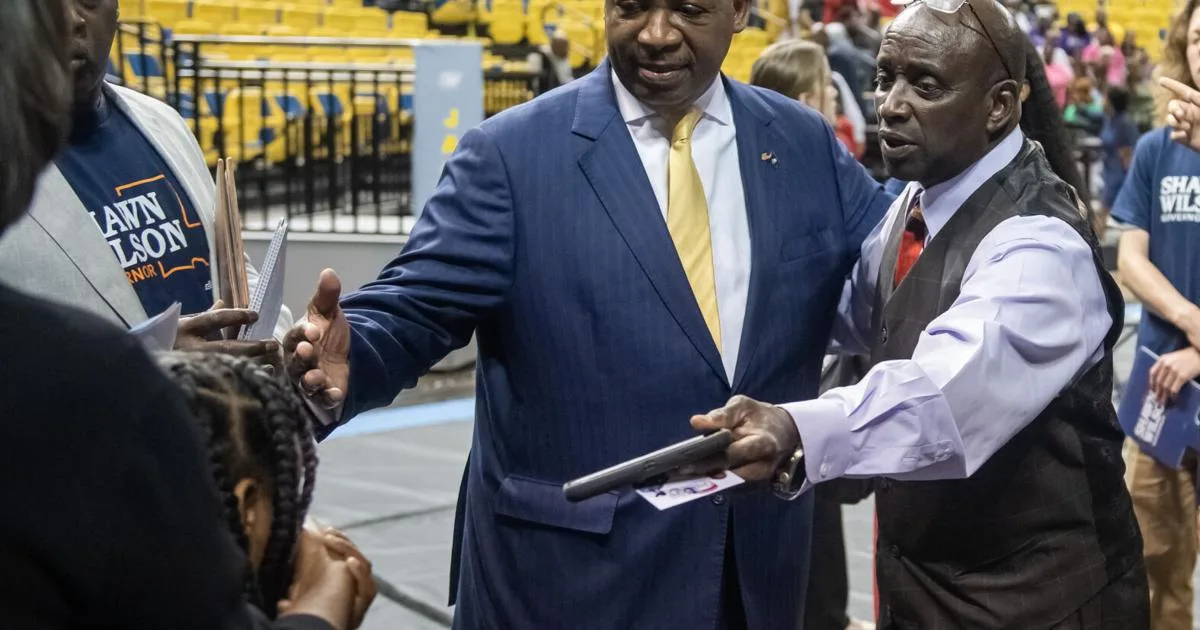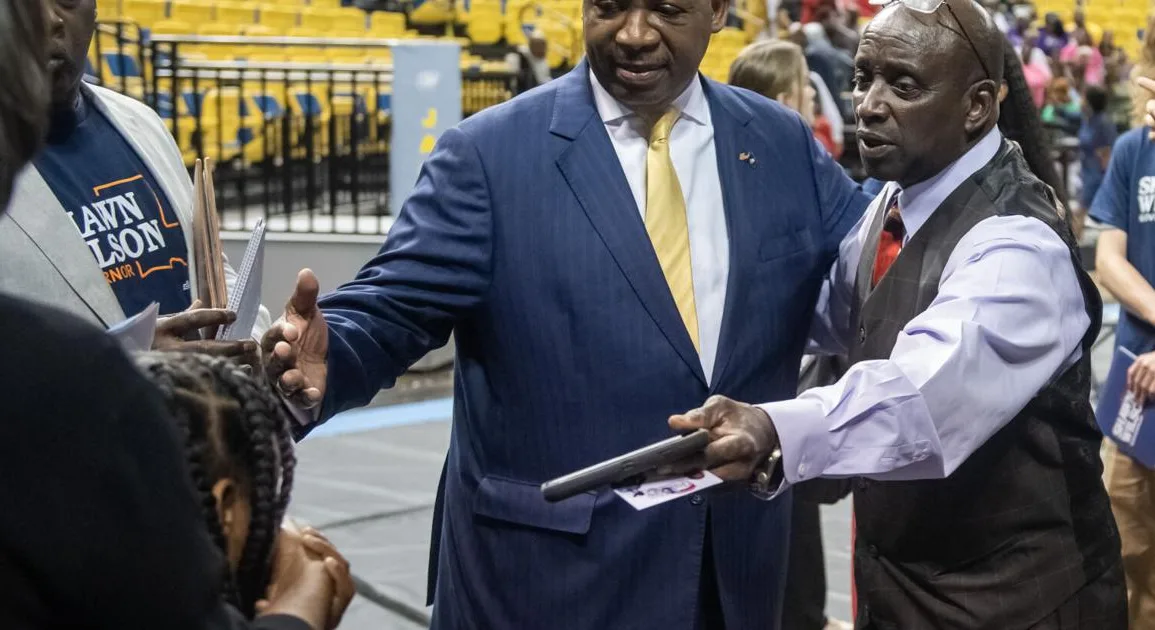
As Louisiana’s transportation secretary for seven years, Shawn Wilson managed more than 4,000 employees, spent billions of dollars and oversaw the repair and construction of roads and bridges throughout the state.
He worked with mayors, legislators and sheriffs in all parts of Louisiana, regardless of their political party.
And he likes to say that no other candidate for governor can match his experience.
But will any of that matter?
Or is it simply more important that he is a Black Democrat in a Republican-dominated state that hasn’t elected a Black candidate to statewide office in 150 years?
That question, of course, won’t be answered until the fall elections.
Wilson does seem guaranteed to finish first or second in the Oct. 14 primary and advance to the runoff election, unless another big-name Democrat unexpectedly enters the race. But if he does end up in a head-to-head race in the runoff against a Republican, he would be considered an underdog. Every statewide elected official is a Republican other than Gov. John Bel Edwards, who narrowly won reelection four years ago. Besides Edwards, Louisiana last elected a Democrat statewide in 2007 when Buddy Caldwell became attorney general.
Wilson expresses little concern publicly about the steep odds he’s facing, downplaying his race and his party as he makes his case to voters.
“If you remove the labels, remove the façade and compare the record and accomplishments, compare the preparations and the skills, compare the relationships, it will be clear that I am the best candidate in this room,” he told the Louisiana Sheriffs Association at a candidate forum recently, one of his few public attempts to address the issue.
“There’s a first time for everything,” he added in a later interview, noting the 2008 election of Barack Obama as the country’s first African American president, and the appointments of African American leaders to prominent higher education roles in Louisiana.
“There will always be folks who have extreme prohibitions when it comes to race,” Wilson said. “I get that. The reality is, at what point do we rise to a level of civility and citizenship and not limit ourselves based on something as deep as my skin tone to dictate our future? What I ask folks to do in comparing me in that situation is consider my record, my achievements, my preparation. And you can consider my race as well.”
A career of public service
Wilson, 54, grew up in Algiers, raised mostly by his mother after his parents divorced, and attended the University of Louisiana at Lafayette.
There, Wilson was a house director and student body president while becoming one of the many young men over the years who were mentored by Raymond Blanco, the dean of students and a former football coach.
“I learned from Coach (Blanco) about how to fight, how to be in tune with people and to have a heart for the least fortunate,” Wilson said. “He was very passionate about those with odds against them — whether it was women, or people of color or international students.”
Wilson went to work for Blanco’s wife, Kathleen, when she was lieutenant governor and stayed on after she was elected in 2003 as Louisiana’s first female governor. In 2007, he lost an election to be on the Lafayette City Council, his only try for public office.
After a year of working with state legislators, Wilson became a senior executive to the secretary of transportation. He continued in a top role during the following eight years when Bobby Jindal, a Republican, was governor, although Wilson said he had minimal direct contact with Jindal.
In 2015, Wilson obtained a Ph.D. from Southern University in public policy. No previous Louisiana governor is known to have a doctorate.
In 2016, Wilson became Edwards’ secretary of transportation, a position he held until he resigned in February to run for governor.
On the campaign trail, Wilson displays an ability to connect with voters not found in many government bureaucrats.
Just before a recent campaign forum at Southern University, Wilson went in search of voters, talking basketball with one person, football with another — he keeps his Drew Brees football helmet in his den, he confided — and his church in Lafayette with yet another.
“How are y’all?” he greeted several people. Finding a supporter, he posed for a selfie and then went to introduce himself to more people.
“Some might assume there’s a disconnect between the retail politics of shaking hands, kissing babies and slapping backs and governing,” Wilson said later. To him, “It’s a no-brainer, a natural occurrence. Government is here to serve people.”
Narrow path to victory
At this point in the governor’s race, Wilson is a little-known Democrat, and few people expect him to win. Republican candidates are outraising him.
That was Edwards’ situation eight years ago. He made his case to voters in the lead-up to the primary as the race’s only Democrat, while his three Republican opponents tore each other up. Then-U.S. Sen. David Vitter, once the prohibitive favorite, held off his Republican challengers to advance into the runoff against Edwards. But his reputation was so tarnished by then that Edwards triumphed.
That is Wilson’s path to victory this year as well. So far, the other four Republican candidates have yet to rough up Attorney General Jeff Landry. But political experts expect them to begin blasting him after the candidates officially qualify for the race next month.
The Edwards model to victory calls for Wilson to receive at least 30% of the White vote and at least 95% of the Black vote. Blacks must also constitute at least 30% of all voters.
Wilson has the support of Edwards, U.S. Rep. Troy Carter of New Orleans and the state’s other leading Democrats.
Like Edwards, Wilson wants to raise the minimum wage and ensure that women receive the same pay as men when they perform the same work. He wants to pay teachers more, spend more on infrastructure and extend the .45-cent sales tax that is scheduled to expire in 2025.
Like Edwards, he is not a fan of the culture wars that Landry and other hardcore Republicans are initiating over LGBTQ+ issues.
Unlike Edwards, he supports a woman’s right to have an abortion, although he said he is personally opposed to the procedure.
Edwards hasn’t been flashy as governor. Wilson wouldn’t be either.
“We are about delivering a competent, sustainable form of government,” he said in an interview. “That’s what I have done for 25 years. It’s not one that is extreme. Not one that is partisan. Not one that knee-jerks.”


